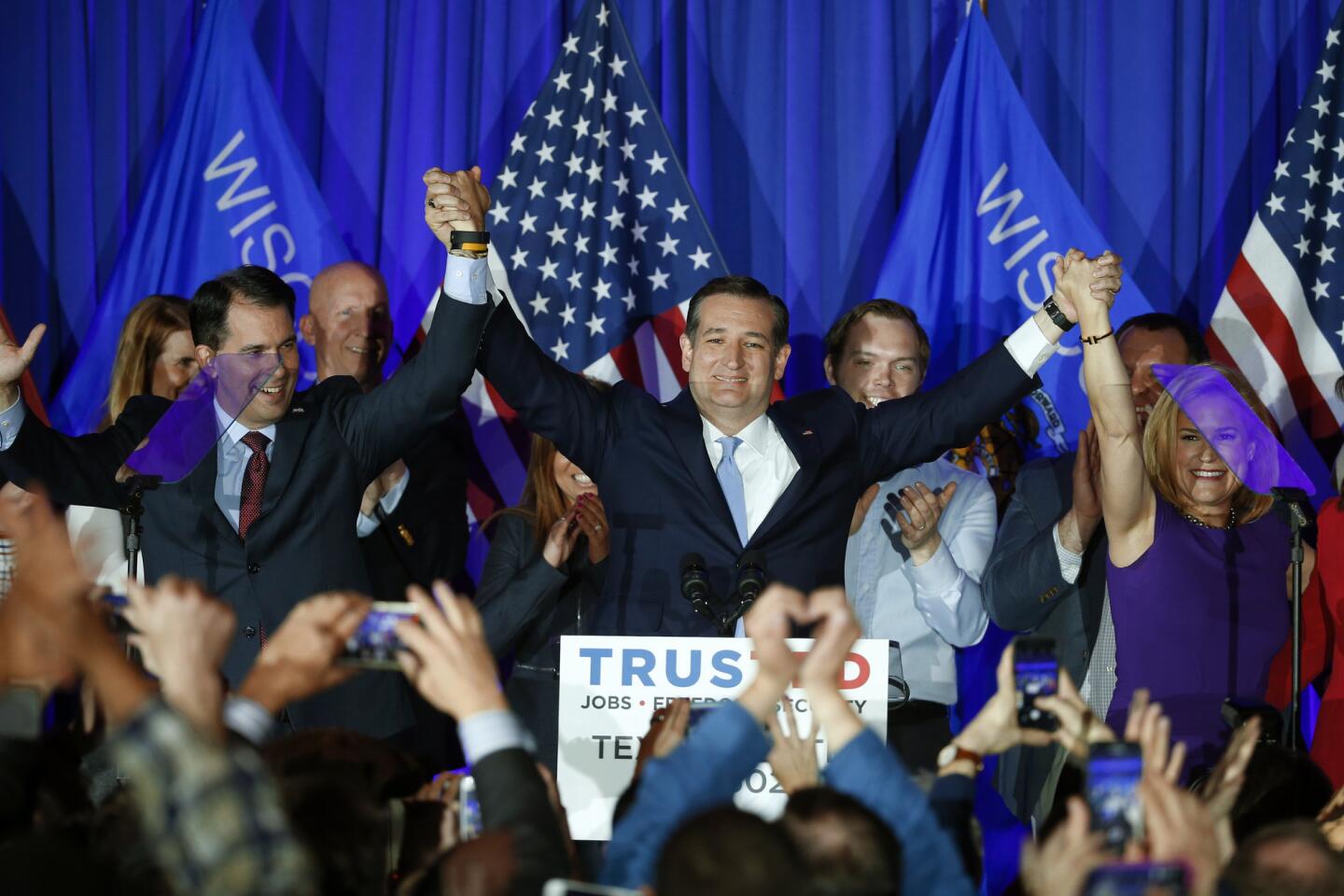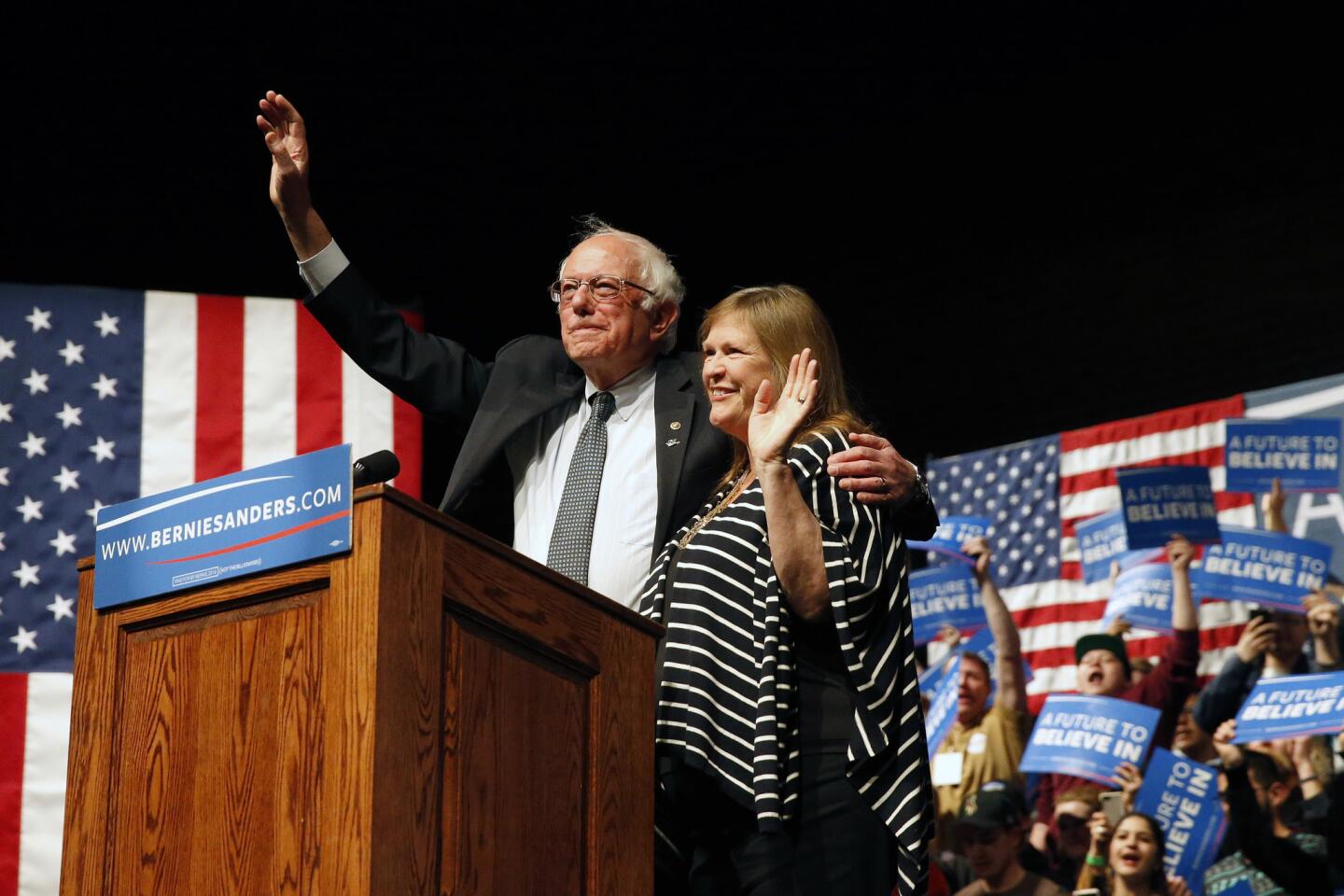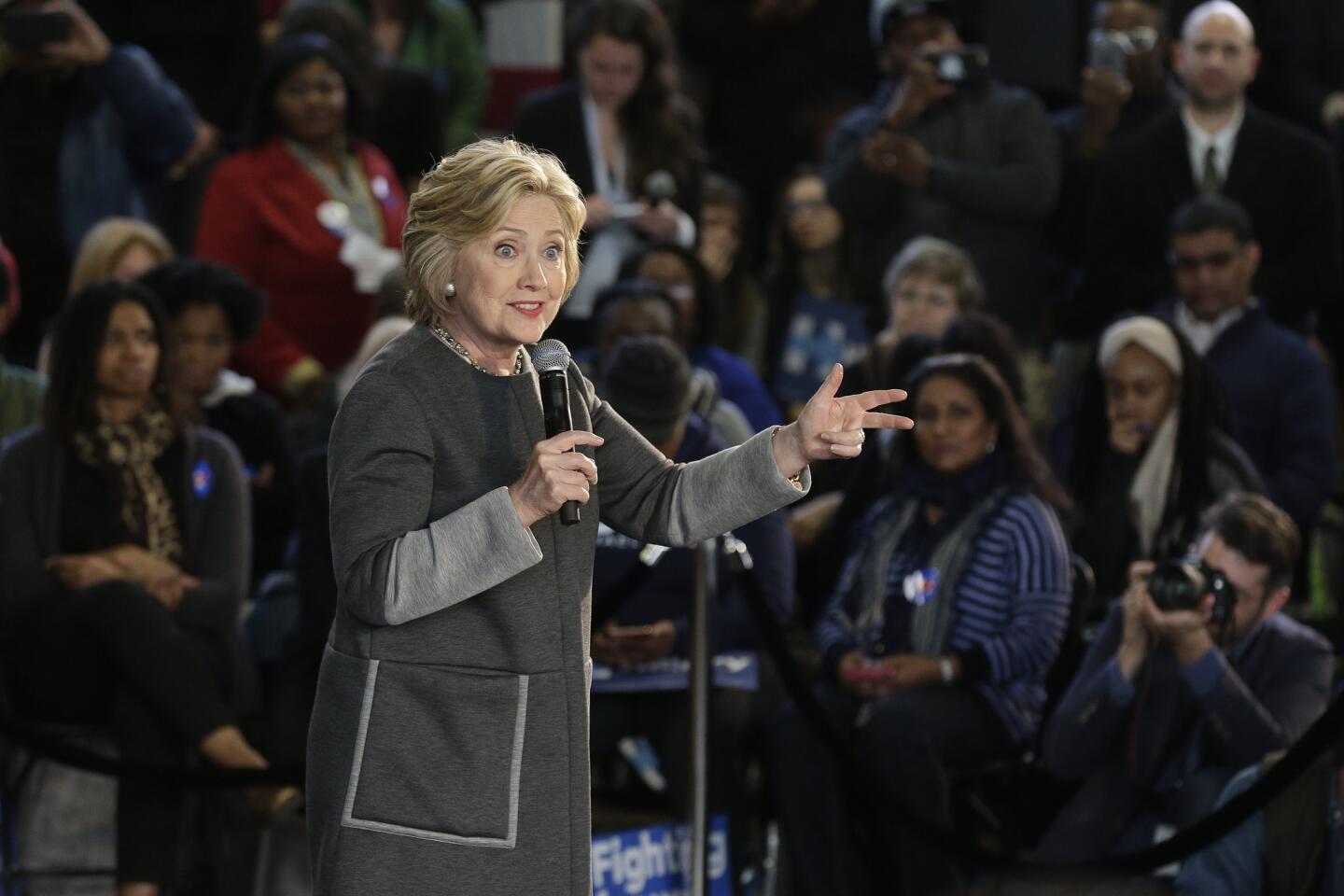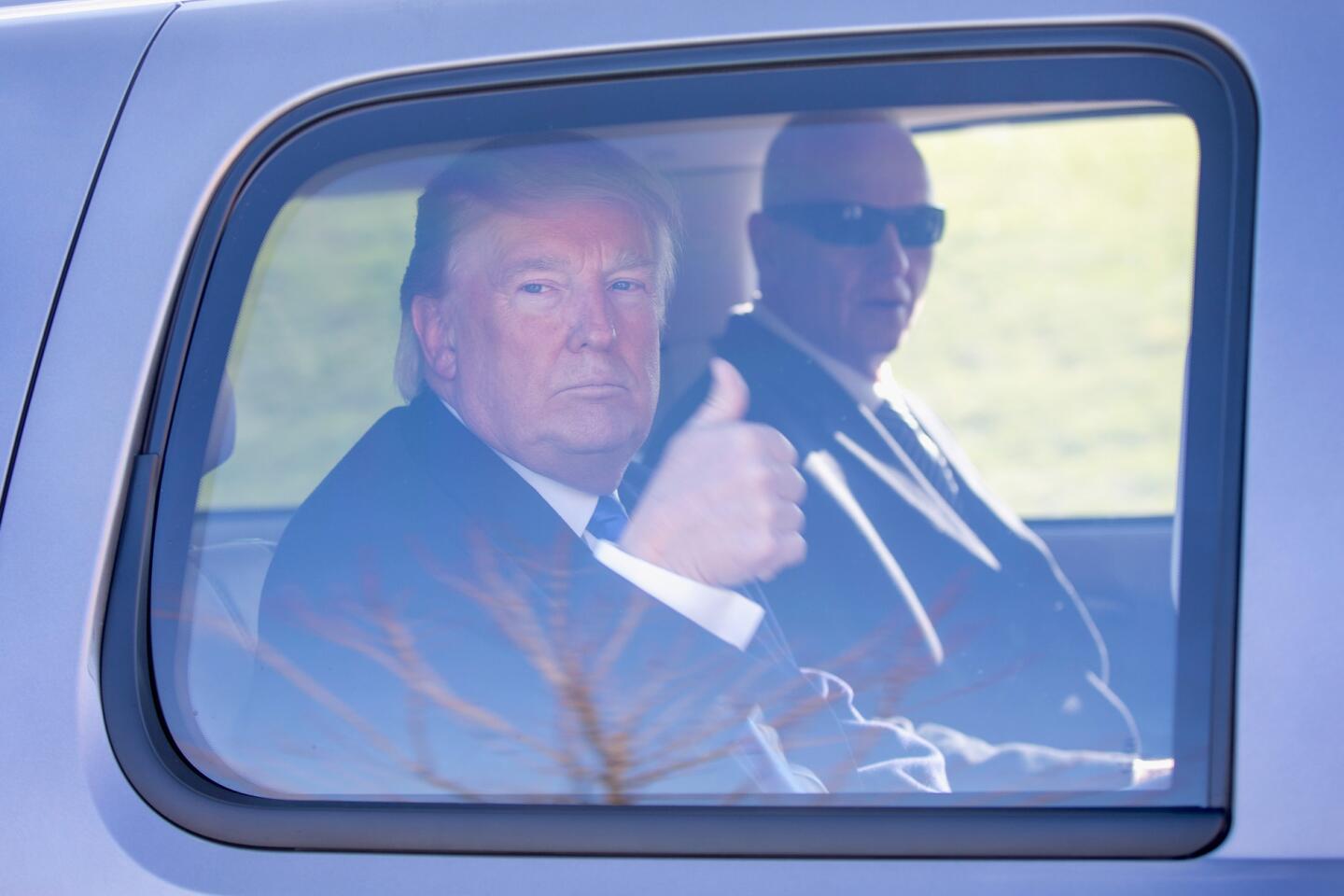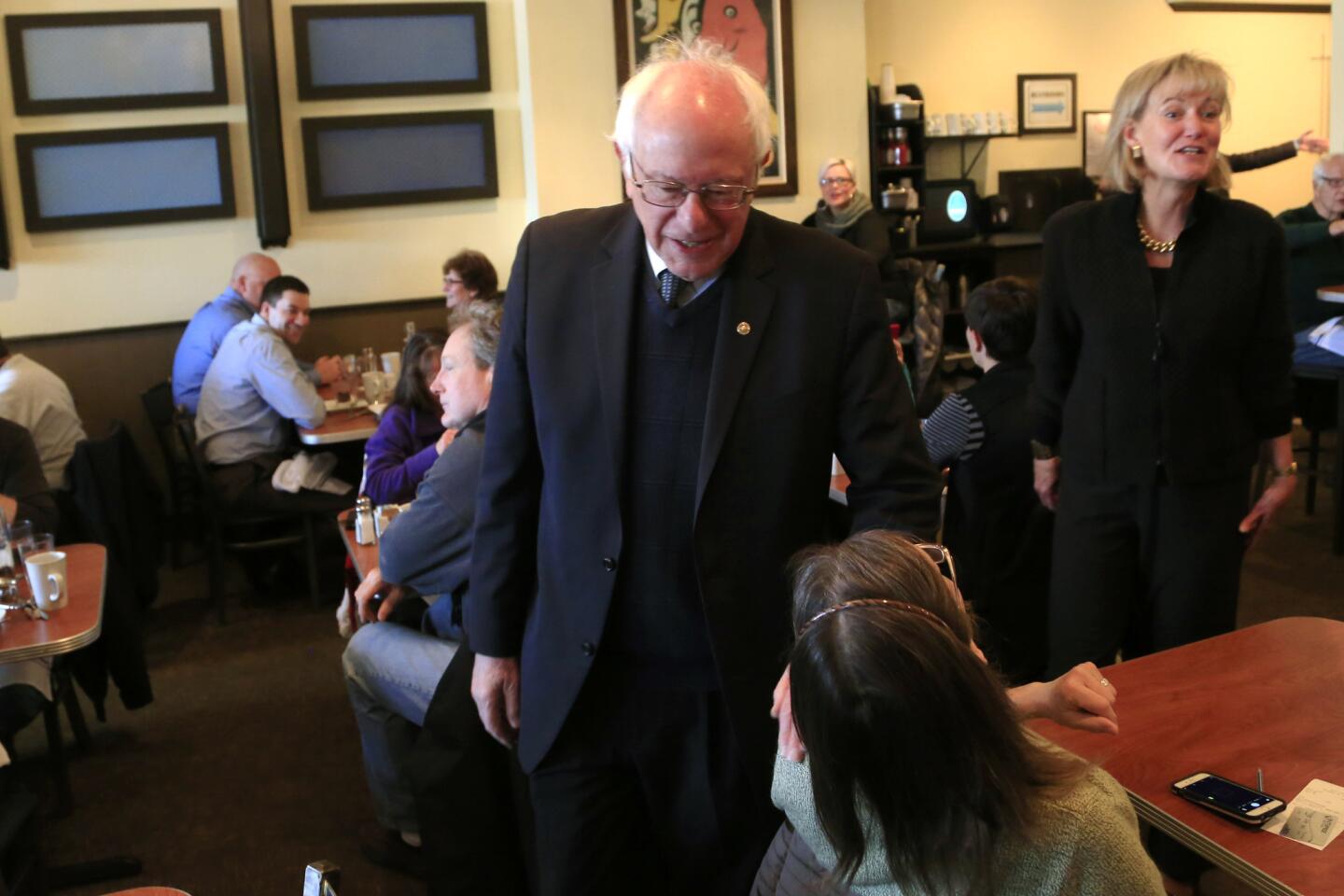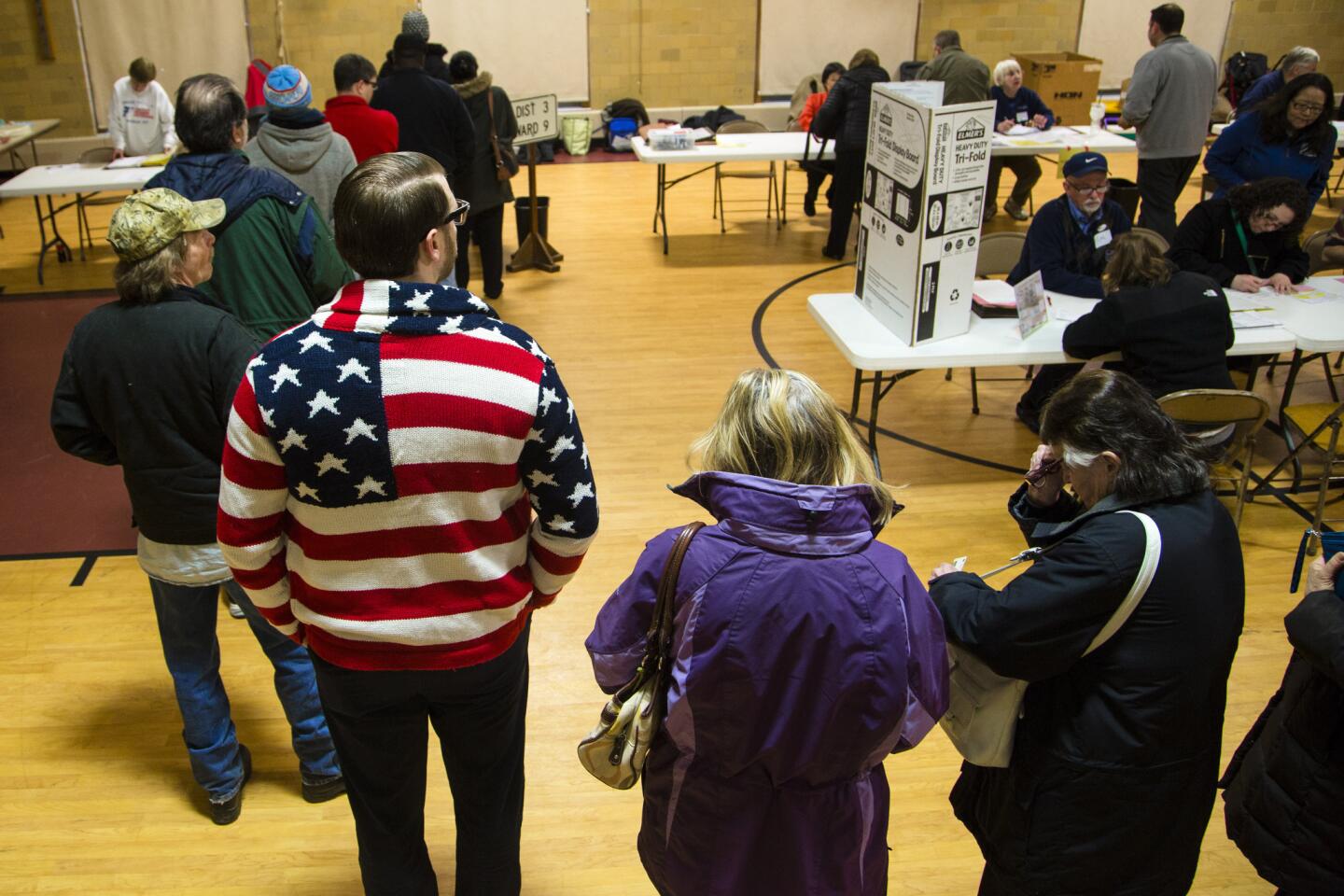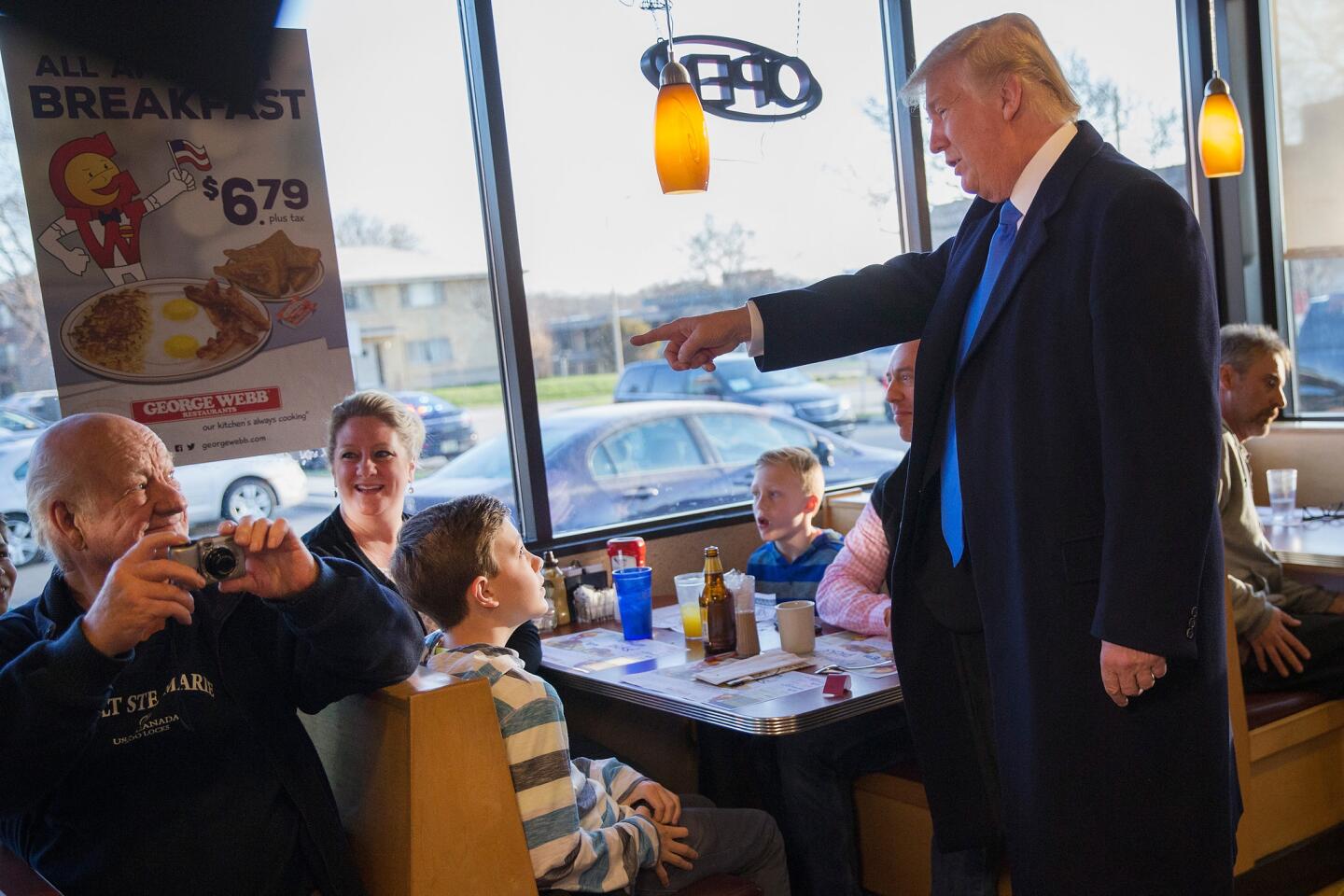Cruz wins Wisconsin, complicating Trump’s path to the nomination
- Share via
Reporting from Milwaukee — Ted Cruz romped to victory Tuesday in the Wisconsin primary, dealing a setback to Donald Trump and complicating the front-runner’s efforts to win the delegates he needs to secure the GOP nomination without a fight at this summer’s Republican convention.
The primary contest offered just 42 of the 1,237 delegates needed to clinch the nomination before the party convenes in July.
But with the count expected to be very close, every delegate has come to matter and Tuesday’s win helped Cruz slice Trump’s delegate lead, albeit narrowly.
Speaking to cheering supporters in Milwaukee, Cruz declared his primary win a turning point.
“It is a rallying cry,” the Texas senator said. “It is a call from the hard-working men and women from Wisconsin to the people of America. We have a choice. We have a real choice.”
Trump, who put on lavish displays to celebrate his earlier victories, made no public appearance.
Instead, he spoke through a scathing statement issued by his campaign, saying he was the victim of “an onslaught” by Wisconsin’s Republican establishment and “countless millions of dollars” in false advertising. He described Cruz as “a Trojan horse, being used by the party bosses attempting to steal the nomination” and predicted he alone would secure the delegates to win.
In fact, the math still works to Trump’s advantage. He entered the night with a lead of more than 250 delegates, and Cruz seemed likely to shave that by only 30 or so.
Cruz won far ahead of Trump statewide, 48% to 35%. Ohio Gov. John Kasich was a distant third with 14%.
Depending on the final outcome, Trump will need to capture close to 60% of the remaining delegates to clinch the nomination without a convention fight, said David Wasserman, who is tracking the GOP race for the nonpartisan Cook Political Report. “Right now,” Wasserman said, “it looks like a 50-50 chance he gets there.”
Heading into the Wisconsin primary Trump suffered one of the rockiest stretches of his campaign, and that raised the hopes of opponents — including many rallying behind Cruz grudgingly as part of a stop-Trump effort — that the New York businessman’s controversies may have finally caught up with him.
Exit polls found a strong aversion to the GOP front-runner, who heads to much friendlier territory Wednesday, starting with a rally on New York’s Long Island.
Nearly 4 in 10 of the Republican voters interviewed Tuesday said they would be scared of what Trump would do if elected president, much higher than the levels of concern expressed about Cruz or Kasich.
About 6 in 10 said they were excited or optimistic about a Cruz presidency, and about half said that about Kasich, compared with just over 4 in 10 for Trump.
Additionally, the level of discontent with Washington and the percentage of voters favoring a political outsider for president, while considerable, was much lower than in states where Trump ran strongly.
Wisconsin at first seemed tailored to Trump’s advantage. The state has a large population of working-class white voters and allows independents to cast ballots in the GOP primary; both groups have undergirded Trump’s political success across the country.
Wisconsin is also more secular and less ideological than states where Cruz, running as a staunch social conservative, has performed well.
But almost immediately Trump ran into difficulties, owing to a series of tactical miscues.
He criticized the state’s two most popular Republicans, Gov. Scott Walker, a onetime presidential rival, and House Speaker Paul D. Ryan, and turned off many by insulting the looks of Cruz’s wife, Heidi, in a posting on social media.
“That stung him badly,” said Rep. Reid Ribble, who represents Appleton and Green Bay in Congress and endorsed Cruz days ahead of the primary. “There’s a real strong sense of family. The idea that somebody would attack anybody’s wife, based on just physical appearance, was just so insulting to the typical father, to the typical husband and to the typical woman.”
Trump also faced a relentless battering from Wisconsin’s conservative talk radio hosts, a key ally in Walker’s pitched battles against organized labor and the political left.
Walker endorsed Cruz and, in effect, turned the primary into a referendum on his performance, telling Republicans to support the senator over Trump “if you liked what we’ve done” in Wisconsin.
Trump’s difficulties were compounded by a series of controversies, including the arrest of his campaign manager on allegations of manhandling a reporter in Florida, and a statement — which Trump quickly revised — that the candidate would support punishing women who have an abortion if the procedure were banned.
Some voters, like Pam Gruettner, said they had backed Trump at first, only to be turned off by his behavior and outlandish statements, especially in the raucous GOP debates.
“I wanted someone to kick butt and get stuff done in the White House,” said Gruettner, a retired saleswoman, pausing after she cast her ballot for Cruz in Waukesha, a conservative stronghold. “I think his ego got the best of him.”
For some, though, Trump’s penchant for unpredictability and blithe disregard for most social and political niceties were precisely the reason to support him.
“Trump is the right person to put in here, because we need somebody who everyone thinks is nuts,” said Tom Podziemski, 67, who cast his ballot in Greenfield, a Milwaukee suburb. “Cruz is just saying what the establishment wants him to say. He’s a puppet.”
Cruz ran harder in Wisconsin than any state since Iowa, where he won the first 2016 contest. He faced a two-front battle, against Trump as well as Kasich, who tried to pick off a handful of delegates in friendly pockets of the state, including the university town of Madison.
For Trump, the good news is the balloting now moves to less hostile political terrain, starting in two weeks with a primary in his home state of New York, where he is an overwhelming favorite to capture a substantial chunk of its 95 delegates.
A string of contests follows on April 26 in Pennsylvania and several Northeastern and mid-Atlantic states, where GOP voters tend to be less religious and conservative, which could also play to Trump’s advantage.
In all likelihood, the race will come down to California, which votes June 7 and offers 172 delegates — the nation’s largest cache.
“We should be careful not to overstate the significance” of the Wisconsin results, said Rob Stutzman, a Sacramento GOP consultant running a political action committee opposing Trump in California. He noted the difficult road Cruz faces, particularly in the contests just ahead.
But, he suggested, “Trump may have really hurt himself this past week.... This could be the beginning of a downward trend.”
mark.barabak @latimes.com
Twitter: @markzbarabak
michael.finnegan @latimes.com
Twitter: @finneganLAT
Barabak reported from San Francisco and Finnegan from Milwaukee. Times staff writer Chris Megerian in Waukesha contributed to this report.
Follow @markzbarabak for national & California politics
ALSO:
Donald Trump is now the least popular American politician in three decades
With Ted Cruz looking strong before Wisconsin vote, Donald Trump scrambles for delegates
‘Bernie blackout’ -- behind the numbers that have protesters in the streets
More to Read
Sign up for Essential California
The most important California stories and recommendations in your inbox every morning.
You may occasionally receive promotional content from the Los Angeles Times.
